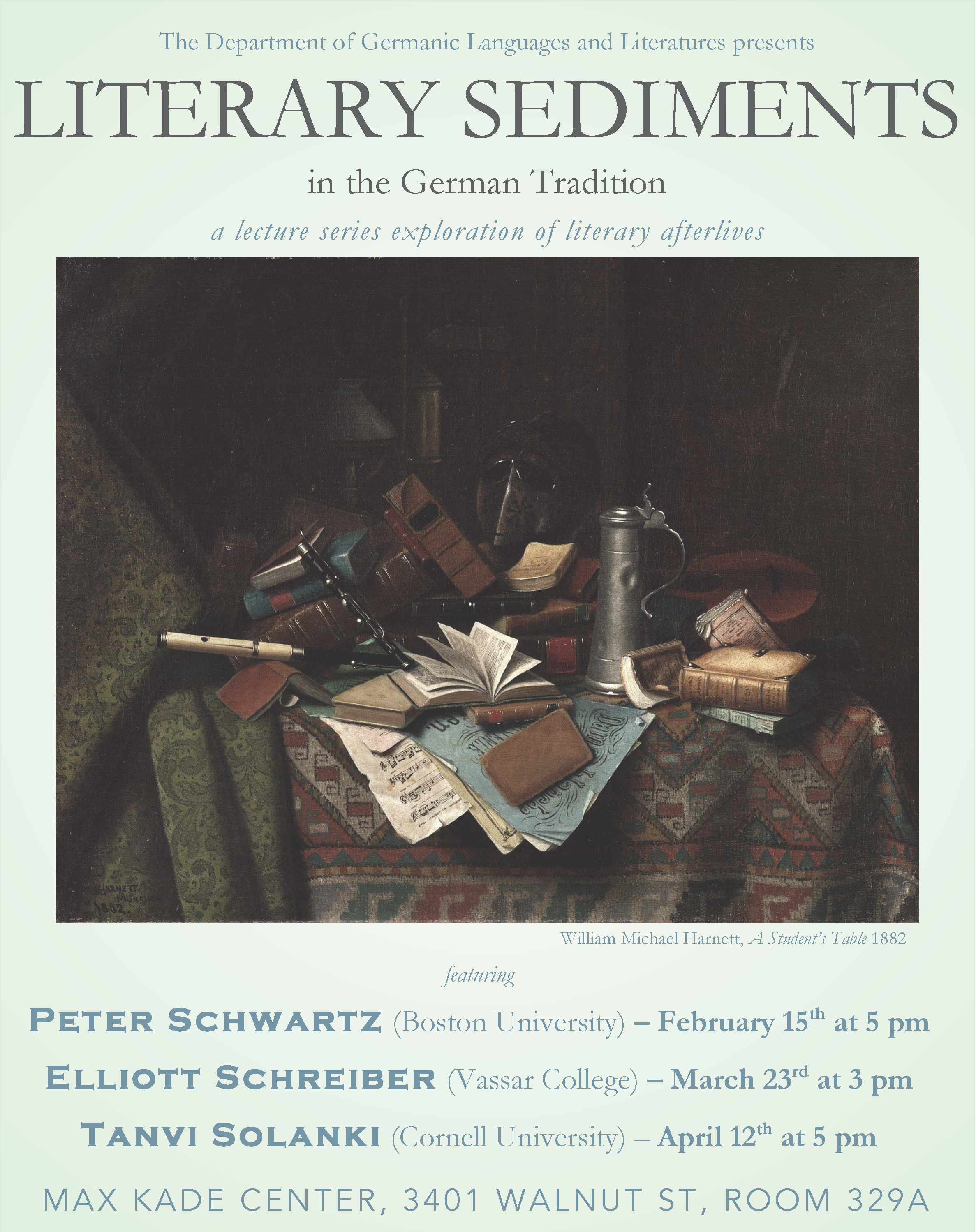Literary Sediments Lecture Series presented by the Department of Germanic Languages and Literatures
Elliott Schreiber's research illuminates contemporary social, aesthetic, and philosophical problems by investigating their emergence in 18th- and 19th-century Germany, especially the period referred to as the Age of Goethe (approximately 1770-1830). His book, The Topography of Modernity: Karl Philipp Moritz and the Space of Autonomy (Cornell University Press and Cornell University Library, 2013), explores the challenges wrought by modernity through the work of one of the most fascinating late-Enlightenment writers and thinkers. Other research interests include the ideology of the folktale (especially in the work of the Brothers Grimm); German-Jewish relations (with a focus on Heinrich Heine); children’s literature and representations of childhood; intersections between literature and the sciences (particularly cosmology and scientific exploration); and the theory and practice of translation.
Through this series of talks, the German department is interested in exploring literary afterlives via the haphazard and layered imagery of geological sedimentation. Two sources helped orient them in developing this theme: the German word “absetzen” in all of its various meanings (to distance oneself, to dethrone, to deposit, to transmit, to wean, etc.) and A Student’s Table, a still-life by William Michael Harnett from 1882. Featuring one speaker per month, Elliot Schrieber from Vassar College joins us for the second installment of this series.




